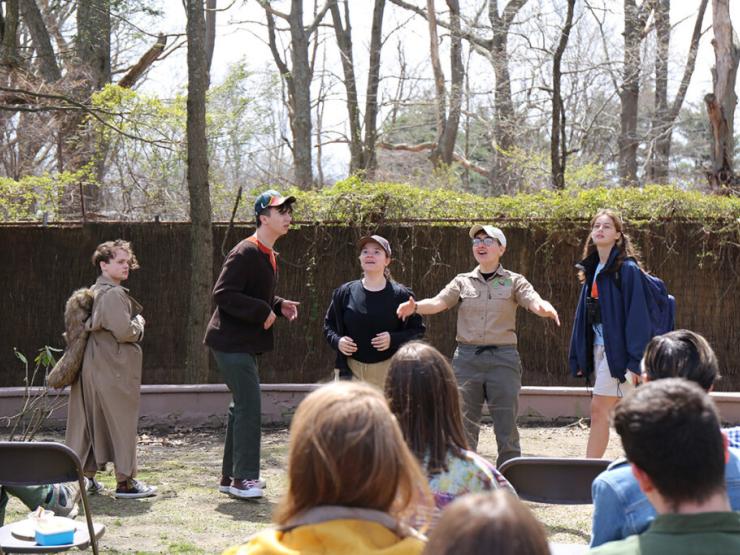As the second half of Emerson's yearlong sequence in writing studies, WR121 expands students' awareness beyond the genre of the essay (the focus of WR101) to explore varied rhetorical situations, genres, and modes of research. Across four major assignments and a range of lower-stakes writing exercises, students conduct diverse types of research including library and archival inquiries, observational fieldwork, and interviews. That research is used to write in genres from the academic essay and annotated bibliographic, to more public-oriented texts such as proposals and social advocacy campaigns, and the discipline-specific genres necessary to success in the various majors offered at Emerson. WR121 emphasizes that research is always driven by a specific situation or question—whether in a class, in a professional setting, or in everyday life—and that decisions about what type of information and what genre of text will best meet that situation are complex and considered, so the deeper a writer's toolkit, the better.
In alignment with the college's strategic learning objectives that graduates should be ready to create, communicate, collaborate, critically think, and civically engage, by the end of the semester students taking WR121 will be able to:
- Analyze rhetorical situations and the choices writers make about appropriate genres to respond to rhetorical situations.
- Identify the type of research called for in different writing projects and establish your credibility as a writer by using research.
- Create an appropriate writing persona depending on rhetorical situation and genre choice.
- Invoke an appropriate audience depending on rhetorical situation and genre choice.
- Identify differences and similarities of writing conventions across genres and use this knowledge to produce appropriate conventions depending on rhetorical situation and genre choice.
Course Materials
All sections of WR121 follow a common structure to emphasize the objectives above. To foster innovative and effective curriculum and best engage students, each faculty member develops (through mentoring from senior faculty) an individual syllabus by selecting readings and developing assignments to meet those goals and make the most of their own expertise. The genres studied and produced in one section of WR121 will differ from those in another, but students in all sections should expect to practice library-based academic research (as well as being introduced to the resources of the Iwasaki Library in a WR121-specific library workshop). Many sections pursue a particular topic or theme drawn from the instructor's own expertise, in order to enliven the examples and benefit from practical and professional experience of how writers approach their research and work. Those themes are designed not to restrict student inquiries, but rather to create a space and model for how students might explore your own interests in meaningful, successful ways.
In addition to examples and readings selected by each instructor to model the genres and pursuits of their class, all sections of WR121 use a common textbook as our shared resources for a unified culture of writing:
The Call to Write by John Trimbur
Each chapter in this book, written by Professor John Trimbur of Emerson, presents a robust examination of a particular aspect of a genre-based research practice. Those include key skills like rhetorical analysis and evaluation of sources, and case studies of specific genres and their effective performance through well-conceived research. Examples are drawn from diverse real-world sources to provide both intellectual and practical understandings, and Writing Studies Program faculty have been directly involved in revisions of the book through the incorporation of materials drawn from past semesters of WR121.
